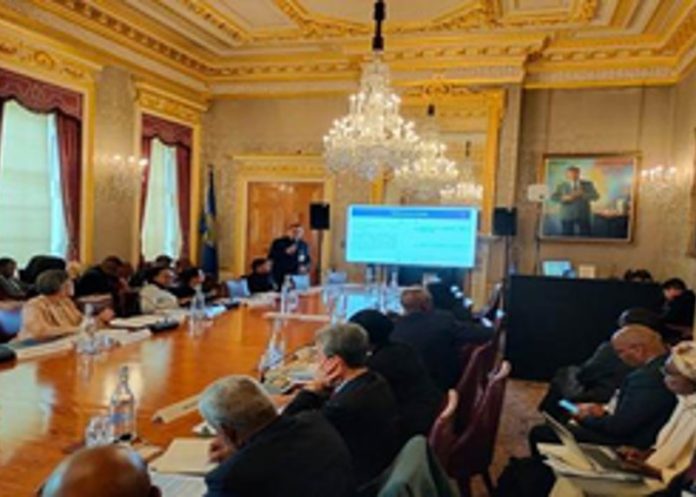LONDON, Apr 25 : India’s centralised public grievance redressal system has been recognised as best in practice across the Commonwealth following a meeting of top civil servants from the 56 member countries this week.
The Centralised Public Grievance Redress and Monitoring System (CPGRAMS) was highlighted in the outcome statement of the Third Biennial Pan-Commonwealth Commonwealth Heads of Public Service meeting held between Monday and Wednesday at the Commonwealth Secretariat Marlborough House headquarters in London.
The meeting was themed as “Institutionalisation of Smart Government to enhance public service delivery” under which the government of India’s administrative department made a presentation.
“The Indian presentation on the Centralised Public Grievance Redress and Monitoring System (CPGRAMS) was made by Shri V Srinivas, Secretary, Department of Administrative Reforms and Public Grievances (DARPG), on April 23, 2024, and received commendation from Commonwealth member countries as a global best practice,” reads a Ministry of Personnel, Public Grievances & Pensions statement.
“The primary objectives of the meeting were to share contemporary knowledge, ideas and experiences on how technology could be leveraged to support the provision of e-services for optimal service delivery and achievement of the 2030 Agenda for Sustainable Development across the Commonwealth. It also aimed at sharing select relevant case studies of some member countries and to identify opportunities for possible partnership and collaboration,” it adds.
Delegates were given the Commonwealth platform to share country case studies based on some of the innovative approaches and strategies adopted to improve performance, digitalise services, minimise bureaucracy and red tape across the Commonwealth public service.
The forum brought together Commonwealth Heads of Public Service, Secretaries to Cabinet, Senior Public Officials, industry champions, and eminent scholars. The sessions were addressed by Tshering Tobgay, Prime Minister of the Royal Kingdom of Bhutan, and Commonwealth Secretary-General Baroness Patricia Scotland, among others.
The Commonwealth Secretariat said the outcomes and key agreements reached in the meeting will form the basis of recommended policy measures and strategies that will be used to promote the institutionalisation of smart government across the Commonwealth.
It was observed that there is currently greater appreciation of the importance of digital government, which has added impetus to the rollout of e-services across many jurisdictions.
Besides India, delegates appreciated the papers and country studies presented by the delegates from Rwanda, Kenya and Namibia, and noted that the forum remains an important platform for networking and sharing knowledge, expertise and ideas on public service management.
Member countries affirmed the Commonwealth Heads of Government Meeting (CHOGM) mandate that seeks to eliminate the digital divide and acknowledged the importance of transformative technologies, such as Artificial Intelligence (AI).
Member countries also noted that AI has the potential for future-ready governance institutions and agile governments to enhance efficiency to deliver the Sustainable Development Goals (SDGs), and spur growth and development, by in particular, improving access to education, healthcare, clean water, energy, and to combat climate change, poverty, and hunger.
They also welcomed the work of the Commonwealth Artificial Intelligence Consortium (CAIC), which is providing critical leadership across policy, capacity building, research and innovation, data and infrastructure domains, for the adoption of AI across the Commonwealth, especially in small states.
Member countries also identified the AI Consortium as the platform to lead the way in capacity development work on SMART government to be effectively used for efficient redress of public grievances, improving service delivery, strengthening integrity systems and ushering in procurement reforms. (PTI)


